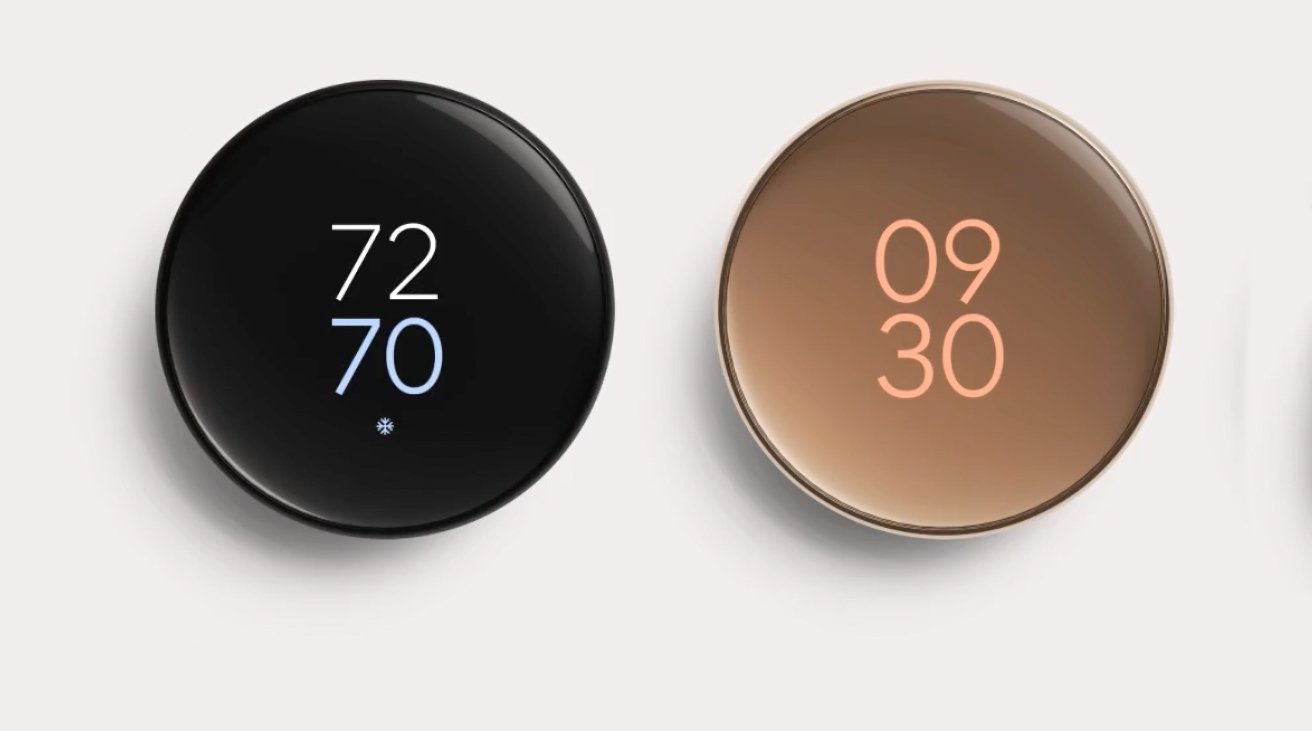Google has announced a sleek fourth version of its Nest Learning Thermostat, alongside a Nest Temperature Sensor, and since they support Matter, both can work with Apple HomeKit.
More than ten years after the design of the Nest Learning Thermostat was applauded for its elegant design, a new version aims to extend that elegance and provide finer smart home control. The Nest Learning Thermostat is larger and its rounded shape is reportedly inspired by water.
“Nest is so iconic. It’s been such a pivotal product in the industry,” says Ivy Ross, Chief Design Officer for consumer devices, in a blog post dedicated to the new design work. “I think it took a lot of courage to reimagine its design because when it launched, it was really the start of a new era where smart home devices weren’t just functional, but beautiful, too.”
The fourth generation of the Nest Learning Thermostat features a domed crystal LCD that is 60% bigger than the last version. It entirely hides the screen’s bezels, presenting a full-screen view of controls and environment information.
It features what Google calls a Dynamic Farsight option, which means the display can be customized. As well as a regular temperature display, it can show a clock, outdoor air quality, or the weather.
On the inside, reports Google in a separate blog post, the Nest now of course uses Artificial Intelligence. AI automatically adjusts the temperature of your house depending on your usage, so that it remains comfortable, but doesn’t waste money.
Alongside the new display, the unit comes in polished silver, obsidian, or gold color options. The unit also comes as standard with a Nest Temperature Sensor, and additional ones can be bought separately.
The Nest Learning Thermometer can now be pre-ordered from Amazon, Best Buy and Google’s own store. Devices will be available on August 20, 2024. In the US, the new Nest will cost $279.99, and in Canada it will be $379.99.
Separate Nest Temperature Sensors will cost $39.99, or $99.99 for a pack of three. Those prices are in US dollars; Google has not stated what the Canadian equivalents will be.

